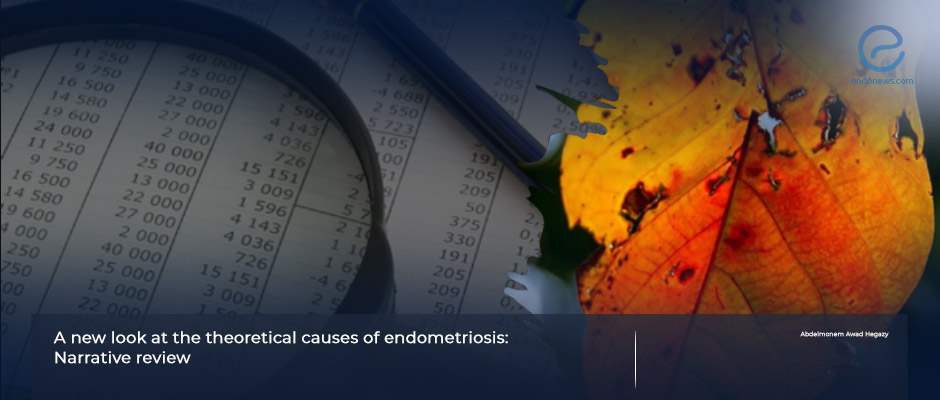Endometriosis: Investigating Theoretical Causes and Pathogenesis
Oct 24, 2024
Mysteries of Endometriosis: Exploring Causes and Implications
Key Points
Highlights:
- The etiology of endometriosis remains largely elusive, with retrograde menstruation being the most accepted theory, yet still under debate.
Importance:
- Although several theories explain the pathophysiological development of endometriosis, the exact cause is still unclear.
- Identifying the causes of endometriosis is essential to prevent the disease, alleviate associated health complications.
What's done here:
- Dr. A. Awad Hegazy penned this narrative review concerning theories explaining the development of endometriosis and reveal how to treat or prevent the disease.
Basic Outlines:
- The 8 possible pathophysiological theories are retrograde menstruation, coelomic metaplasia, stem cell recruitment, embryogenesis, metastatic, immune dysfunction, hormone imbalance, and environmental theories.
- Retrograde Menstruation Theory: Proposed by Sampson (1925), it is the most accepted but fails to account for cases in boys, prepubertal girls, and newborns
- Coelomic metaplasia theory, introduced by Mayer (1924), suggests the metaplasia of coelomic epithelium to endometrial tissue.
- The embryogenetic theory assumes embryonic remnants can differentiate into endometrial tissue, explaining lesions in lymph nodes and distant organs.
- Metastatic theory is that endometrial tissue can metastasize through the uterus's blood vessels and lymphatic drainage.
- Stem cell recruitment theory attributes endometrial dispersion to stem cells in the endometrium's basal layer mixing with menstrual blood.
- İmmune dysfunction theory involves immune cells, such as macrophages and neutrophils, in the growth and invasion of endometrial cells.
- Hormonal imbalance and environmental factors examines the roles of estrogen and progesterone imbalance and environmental influences (alcohol, smoking, caffeine, pollutants ..)
- Examination of potential connections between sexual activity during menstruation and endometriosis also discussed.
- Recommendations for future research to clarify the pathogenesis of endometriosis are included
Lay Summary
Understanding the etiology of endometriosis is crucial for preventing its occurrence and minimizing the significant health burdens it imposes on women. As current treatment options are limited and often lead to severe side effects, identifying potential causes can empower women with knowledge and lead to better management strategies
In a recent study, Dr. A. Awad Hegazy from the Department of Basic Medical Sciences at Zarqa University, Jordan, delves into the theoretical causes of endometriosis. As a progressive and painful chronic condition, grasping the underlying causes and mechanisms of endometriosis is essential for effective prevention and control. Over the years, several theories have emerged to explain its complex pathophysiology.
The most widely accepted theory, retrograde menstruation, was first proposed by Sampson. However, this theory does not adequately explain cases involving congenital cervical stenosis and imperforate hymen in individuals without endometriosis. To address these gaps, alternative theories have been explored, including embryogenic theory, coelomic metaplasia, metastatic theory, stem cell recruitment, immune dysfunction, hormonal imbalance, and environmental factors.
Moreover, sexual activity during menstruation has been suggested as a potential contributor to endometriosis. Some studies indicate that female orgasm may play a role, with uterine contractions potentially drawing in semen and endometrial debris.
Dr. Hegazy emphasizes the need for future research to clarify these mechanisms and achieve a definitive consensus on the origins of endometriosis.
This narrative study was recently published in the International Journal of Reproductive Medicine.
Research Source: https://pubmed.ncbi.nlm.nih.gov/39091427/
menstruation retrograde fertility sexual behavior pathophysiologic theories coelomic metaplasia embryonic remnants stem cell endometriosis.

